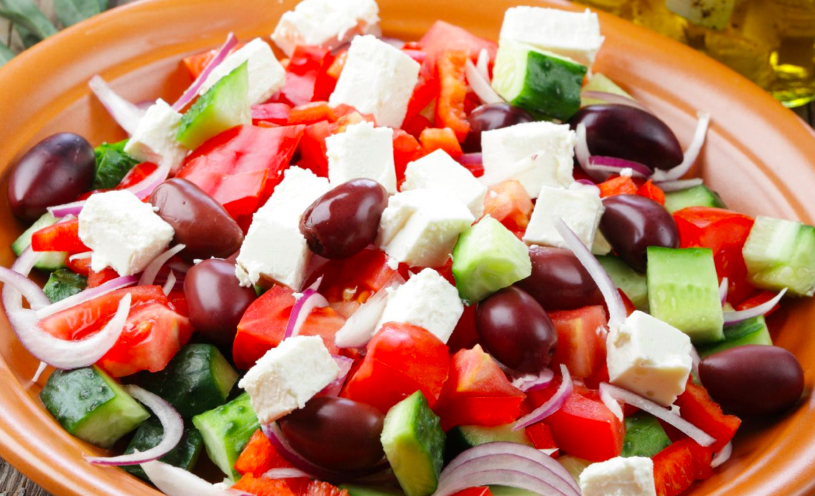Key ingredients in the Mediterranean diet

Healthy eating doesn’t have to mean a dish full of tasteless, bland food. In fact, there are many healthy recipes, especially in the Mediterranean diet, that produce foods that’ll leave your mouth watering, just at the thought of them. Robin Ellis reveals tips for healthy eating by following a Mediterranean approach to cooking, which will leave your plates empty and your tummies full! A great range of recipes means you can be as adventurous as you like, as each dish is flavoursome, tasty and above all, healthy!
Fish
A staple protein in any Mediterranean dish, fish is a very common ingredient in recipes. Fattier types of fish like tuna provide omega 3 fatty acids, which are good for the heart, whilst other lean seafoods like shrimp or sea bass include protein.
Fresh fruit
Eating fruit is essential when it comes to good health – and when trying to lose weight – as the antioxidants help control chronic inflammation. Fruit is also low in calories and fat, but high in fibre. Most fruits also contain vitamins, minerals and proteins, which all contribute in helping to look and feel our best, as well as protecting us from disease.
Vegetables
Not only do vegetables provide good nutrition, they are also rich in vitamins A, C and K, and fibre. Peppers and tomatoes are a staple choice for many dishes and can be used fresh, roasted, dried or even ground to add into sauces and pastes.
Wholegrain pasta and rice
Switching from white refined grains to wholegrain provides vitamins, minerals and nutrients, as well as fibre. Plus, wholegrain pasta and rice generally taste much better than the white refined equivalents.
Herbs and spices
Fresh onion, garlic and other herbs and spices not only have their own health benefits, but they add flavor to the dish, meaning less salt is used. Using less salt means a better chance of improving blood pressure.
Nuts and seeds
These are used either as snacks in the Mediterranean diet or sprinkled on salads. When dry roasted they add flavour, plus they’re high in protein, fibre, vitamin E, calcium and magnesium. Not to mention their amino acids help to maintain healthy blood vessels.
Little or no red meat
Fish or poultry are good alternatives for processed or fatty meats and boiling, baking, grilling or roasting are all better alternatives to frying.
Dairy products
A limited amount of dairy products are used in Mediterranean dishes, but when they are, they are always fat free – but this does not affect the taste, meaning a much healthier option all round!
Olive oil
Cooking with olive oil rather than butter is key when it comes to Mediterranean dishes. With its high monosaturated fat content and high content of antioxidants, it is thought that this is why the Mediterranean people have a very low heart disease rate.
For loads of great Mediterranean recipes, read Healthy Eating for life: Over 100 Simple and Tasty Recipes (£6.99, Right Way) by Robin Ellis.







